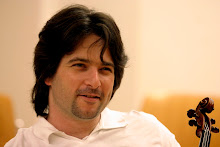The way to mastery of our instrument and whether we achieve it or not is not depended on practice time.
The difference between success and failure lies between how we utilize our daily practice, how focused we are on our objectives and whether we are aware of the specific difficulties we must overcome.
Focus and awareness during practice time are the key words for the aspiring musician. Without them the time we spend inside the soundproof room does not reward us with the reward we expect.
I separate general daily work and preparation for a coming performance and would like to concentrate on the former this time, rather than the latter.
It is important to try and plan your practice session not only time wise but also what aspects of your playing are you trying to improve. Take some time before you begin physically playing to think about what you are trying to achieve; were there issues raised by your teacher in your last lesson? Is there a specific technical problem you need to address and does it relate to a piece you are playing?
Take playing scales for example; you can work on intonation, shifting, tone production, vibrato, bow strokes, quickness, physical tension and other issues. What you need to do is decide what you are aiming for every time you play scales. This will make the work less boring and by changing the way you work you avoid mind-bogging routine.
Try to find ways to connect elementary technical work with the pieces you are working on, for example: after working on thirds, shift to excerpts from your repertoire which features thirds.
As for pieces: one of the biggest time wasters is learning a new piece and playing it “only for notes” or “half tempo” for a few days. Although it is a good way for initial practice (I must admit I do not believe in “just the notes” approach) you must bring each line/phrase/bar straight to performance level, even if you can not yet connect the “snippets”.

4 comments:
Your suggestions for planning practice tiem is really helpful. Thank you.
You are welcome
Glad I managed to help
Practice time utilization is something one has to do wisely when having only one hour per day.
I find it very hard to start with scales, so I play a Schradick exercise and than the relevant scale (around three-four exercises and scales, including the one of the piece I'm playing), than practising vibrato on all four strings in the first and the third position, than practising changing bow and than working on a certain piece (up to the point I reached at the last lesson).
We start the lesson with the scale (with different bow techniques - as the piece requires) and than the piece.
I'd love to read your suggestions...
you seem to be doing the right thing
Post a Comment